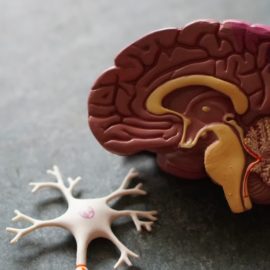

This article is an excerpt from the Shortform book guide to "First, Break All the Rules" by Gallup Press. Shortform has the world's best summaries and analyses of books you should be reading.
Like this article? Sign up for a free trial here .
Is talent an essential prerequisite of success? Can talent be taught?
Traditionally, organizations have held onto the belief that talent can be trained into employees or that employee talent isn’t a necessary component of success. According to Marcus Buckingham, the author of, First, Break All the Rules, both of these beliefs are inaccurate.
Here is why you should vet your employees for talent instead of trying to create it.
Can Talent Be Taught?
Every job lends itself to a unique set of talents and, therefore, requires a person with those talents to fill the role. For example, great lawyers have a talent for debating. Great accountants have a talent for organizing. Great caregivers have a talent for empathy.
Talents create a filter through which you see the world. They guide the thought processes that create habits and proficiencies. For instance, if you’re a talented socializer, your brain likely keeps you open and comfortable by filtering out many of the insecurities that are often associated with new relationships.
With regards to employee talent, there are two popular misconceptions:
- Talent can be taught. While you can give someone the tools to grow their talents, you can’t teach talents like empathy or confidence. You need to hire people who already possess the necessary talents for the position.
- Talent drives performance. Talent gives insight into an employee’s thought process. For example, if someone is a talented negotiator, it likely means that they’re naturally constantly thinking about counter-offers and price points. If you hire someone who lacks this talent, you can teach them your process, but you can’t change the way that their brain works.
There are three basic categories of talents: striving, thinking, and relating.
- Striving talents inform your motivations. They include talents such as ambition, altruism, competitiveness, and mastery. They reveal why you do what you do. For example, if you’re competitive, your desire to improve likely comes from an internal need to best your competitors, and you may excel in a position such as an attorney or salesperson.
- Thinking talents inform your thought and decision-making processes. They include talents such as discipline, flexibility, focus, and logic. They reveal how you come to conclusions and decisions. For example, if you’re organized, your decision-making process likely reflects your need for everything to be in its place, and you may excel in a position such as an assistant or accountant.
- Relating talents inform your relationships. They include talents such as socializing, empathy, trust, and confrontation. They reveal how you create relationships and why you make them with the people that you do. For example, if you’re empathetic, your ability to understand the emotions of others will inform the way that you interact with them, and you may excel in a position such as a teacher or a nurse.
How Much Can a Person Change?
As discussed, talents can’t be taught. If you can’t train your employees to have talents they don’t possess, how much of a person can you actually change?
The Brain
Talents are developed at a young age through neural pathways, which develop based upon your experiences. For instance, if you handled confrontation constantly as a child, you likely built a strong neural pathway that allows your brain to quickly process aggressive situations. That pathway may translate into a talent for debating or handling difficult conversations.
Once you reach your teenage years, you no longer possess the ability to develop new connections. While you can improve upon the connections that already exist to a certain extent, you won’t be able to develop significant talents or abilities if they don’t already exist.
Skills vs. Knowledge vs. Talent
While talent is fixed at a young age, skills and knowledge come through experience and education. They can be taught at any age and provide employees with the tools and information they need to use their talents.
Skills are the abilities an employee uses to do their job. For example, most office employees need to know how to perform basic tasks on a computer. If they don’t have a talent for learning new information or using technology, they may never excel at these skills, but they can be taught to use them at a level of proficiency that allows them to do their work.
Knowledge is information that informs how you do your job. There are two types of knowledge: factual knowledge and experiential knowledge.
- Factual knowledge is knowledge that you gain through education or research. It’s typically straightforward information that allows you to perform a task correctly. For example, a defense attorney needs to understand the process of a court proceeding before they defend a client.
- Experiential knowledge is knowledge that you gain through experience. Often less tangible than factual knowledge, experiential knowledge teaches you how to make choices and develop values based upon past experiences. For example, an experienced teacher may not assign large projects at the end of the school year because they’ve watched their students mentally checking out at that time in the past.
You can teach skills and knowledge after you bring someone on-board. With this in mind, you should always focus on a candidate’s talents over their skill-sets or education. For example, if you’re hiring an accountant for your organization, you can teach them to use Excel and build reports. However, you can’t teach them the striving talent of accuracy or the thinking talent of organization.
Myths Surrounding Talent
Myths surrounding talent suggest that talent is a difficult thing to find and something that isn’t necessary for all positions. These myths prevent people from seeking talent in their hiring process and lead to the employment of people who don’t fit in certain roles.
Myth #1: “Talent Is Rare”
As a reminder, talents aren’t magic. Everyone has talents. As a manager, the challenging thing isn’t finding someone with talent. It’s matching their talent with the right position. To do this, you need to pay close attention to the requirements of each role and the talents of your individual employees.
For example, the relating talent of socializing isn’t inherently special. Many people possess it. However, an employee that works in human resources with that talent is special. This is because they’ve been placed in a role that plays into their talent. This advantage makes them more likely to be a “talented” HR employee.
Myth #2: “Some Positions Don’t Require Talent”
Many managers or higher-level employees can’t understand why “talented” people would want to work in “low-level” positions such as a housekeeper or janitor. Therefore, they assume that those positions don’t require talent, and that the people in those positions are simply desperate or waiting for a promotion.
However, this perspective is false. While some people have striving talents that push them to try to climb the corporate ladder or achieve high-profile status, others have striving talents that push them to maintain consistency and complete daily tasks. As a manager, you have to respect the fact that every position requires talent to be done effectively.
For example, great janitors aren’t defined simply by their ability to clean a room. Anyone could clean a room every once in a while, but janitors return to work every night knowing that the work they did the night before has been destroyed. While this would wear most people down, great janitors have a specific set of talents that allow them to return every day despite the endless cycle.

———End of Preview———
Like what you just read? Read the rest of the world's best book summary and analysis of Gallup Press's "First, Break All the Rules" at Shortform .
Here's what you'll find in our full First, Break All the Rules summary :
- Why only 13% of the world’s workforce is actively engaged at work
- How to find strong employees and keep them
- The 12 questions to ask your employees that help you determine the strength of your organization






